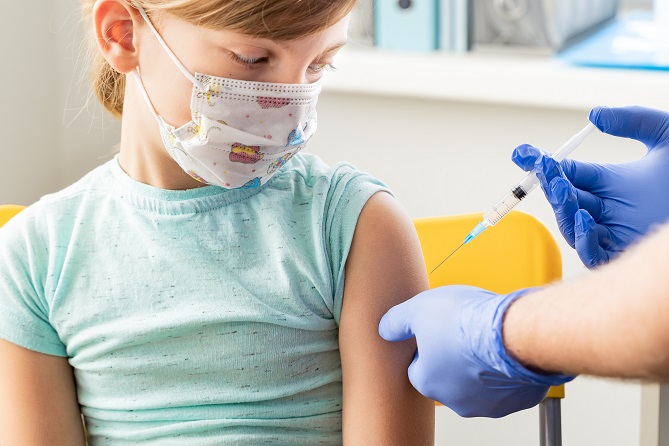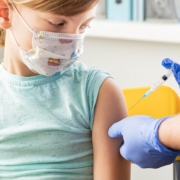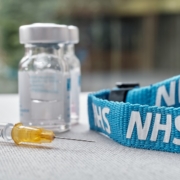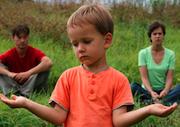Vaccinating our kids against Covid
 COVID-19 has affected us all in different ways over the past two years. For most of us, our lives have looked completely different to how they were before 2020 and how we expected them to be. In the spring of 2020, when deaths from or with Covid were high and we were only beginning to understand how best to treat the seriously unwell and understand who would be most at risk, there was a race to develop a vaccine that would potentially put an end to the pandemic and allow the world to return to normal.
COVID-19 has affected us all in different ways over the past two years. For most of us, our lives have looked completely different to how they were before 2020 and how we expected them to be. In the spring of 2020, when deaths from or with Covid were high and we were only beginning to understand how best to treat the seriously unwell and understand who would be most at risk, there was a race to develop a vaccine that would potentially put an end to the pandemic and allow the world to return to normal.
Many of us have very strong views about various aspects of the pandemic including around the vaccine. As Christians, we need to consider carefully how we respond to each other over our different views. In this blog, I will attempt to discuss the emotive issue of vaccination of children against COVID-19 and consider some of the factors which make it a somewhat different issue to vaccinating adults.
Increasing numbers of people are expressing concerns about the safety of vaccinating children against Covid, especially as the vaccines are being rolled out in increasingly younger children. In the UK those aged 12-15 are being offered a second dose.
Vaccines for COVID-19 were developed in record time and clinical trials in adults were set up. The purpose of clinical trials is to compare an intervention to a placebo or an existing intervention and to monitor effectiveness and safety both short and long-term. Even after long term trials are completed the Yellow Card system continues to collect information about possible side effects. History reminds us of situations where significant side effects have been detected long after drugs or interventions have been in wide use (thalidomide being an infamous example).
Due to the huge concern about the impact of COVID-19 the new vaccines were given emergency approval as data suggested they were effective and safe. In addition, those who had been given a placebo were offered the vaccine.
Clinical trials in children are ethically more difficult than trials in adults because of issues around consent. An adult who gives consent to an experimental treatment should do so in full understanding of the potential implications, whereas a child enrolled in a study will have consent given by an adult caregiver.
In the UK, the vaccine currently being given to children aged 12-15 is the one produced by Pfizer, which has been trialled by the pharmaceutical company in the US. The trial started in March 2021 and runs until 2026 so has been running less than a year. In the UK a trial began in September 2021 using Pfizer as a first dose and a booster of Pfizer, Moderna or Novovax. The trial will run for ten months following the booster.
There have been concerns about the safety of children in schools during the pandemic, as well as concerns about children passing infection on to adults. Many parents and teachers have been keen for children to be vaccinated. There are, however, many who are very unsure about the benefit to children and the balance of this with known and potential risks. The JCVI produced a report in September 2021 and stated ‘The current update relates to JCVI’s review of considerations for the vaccination of children aged 12 to 15 years who do not have underlying health conditions that put them at increased risk from COVID-19. A precautionary approach was agreed given the very low risk of serious disease in those aged 12 to 15 years without an underlying health condition that puts them at increased risk. Given this very low risk, considerations on the potential harms and benefits of vaccination are very finely balanced.’
As the vaccines have been rolled out, firstly in adults and then in children, awareness of adverse effects has increased. The Astra Zeneca vaccine was initially given to adults of any age, and a trial in children had begun, however, in May 2021 it was recommended that it should not be given to those under the age of 40 due to the risk of blood clots. There have also been increasing reports of myocarditis following vaccination. The risk of this increases after the second dose of the vaccine and boys are more at risk than girls. The risk of myocarditis is small and mostly appears to be mild however the long-term effects on the heart are currently unknown.
Otherwise-healthy children are at extremely low risk themselves from serious illness as a result of Covid and many of them have already been infected with Covid and have some degree of immunity. There is therefore a significant question as to whether vaccination is in their best interest.
Some may argue that vaccinating children is necessary to protect the adults around them. However, as it becomes increasingly apparent that, especially with the Omicron variant, vaccination prevents neither infection nor transmission (although it appears to reduce the chances), this does not seem to be a logical argument. More importantly, there are serious ethical problems with a strategy of vaccinating children in order to protect adults.
When any medical treatment is given, informed consent is crucial, and in order for this to be valid all information regarding effects known and potential must be shared, and consent must be given without any coercion. One area of concern is that some measures, such as vaccine passports and different isolation rules for the vaccinated and unvaccinated, are effectively coercion and therefore invalidate informed consent. Additional coercion has been applied as children have been encouraged to get vaccinated to protect others.
Another concern is that anyone who questions the COVID-19 vaccine is labelled as an anti-vaxxer. Many of those who have chosen not to allow their children to be vaccinated (myself included) are not anti-vaccination at all. However, given the mildness of Covid in the vast majority of children (and adults), we would prefer to wait until there is long-term data on effectiveness and safety before making a decision on vaccination There are others who have already made the very valid decision that they do not want to risk harm to their child.
Julie Maxwell is a community paediatrician












Leave a Reply
Want to join the discussion?Feel free to contribute!